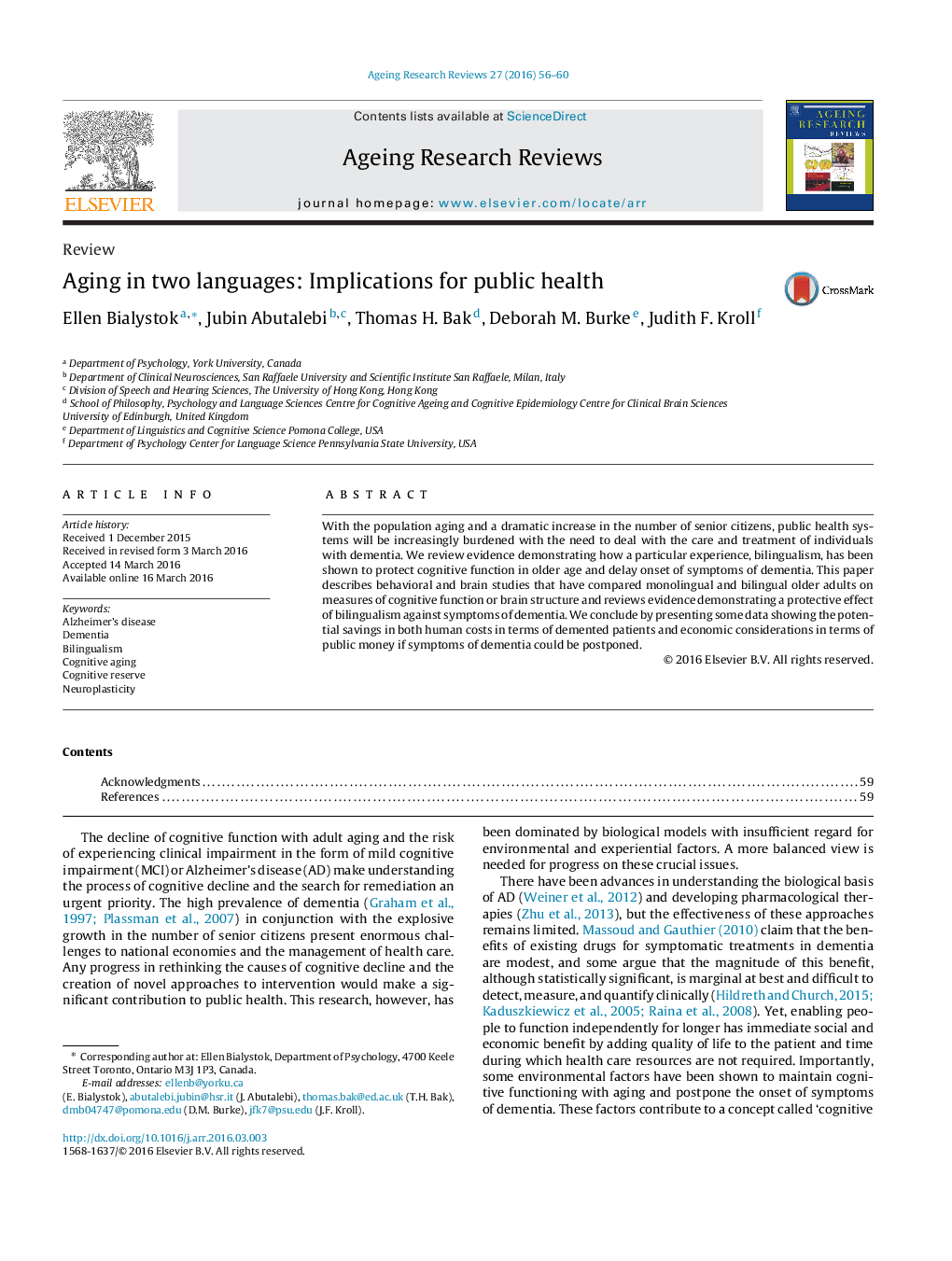| کد مقاله | کد نشریه | سال انتشار | مقاله انگلیسی | نسخه تمام متن |
|---|---|---|---|---|
| 1902154 | 1534306 | 2016 | 5 صفحه PDF | دانلود رایگان |
• Large body of research shows that bilingualism contributes to cognitive reserve.
• Evidence includes delay in onset of symptoms of dementia.
• Society support for bilingualism and second-language learning has long term implications for public health.
With the population aging and a dramatic increase in the number of senior citizens, public health systems will be increasingly burdened with the need to deal with the care and treatment of individuals with dementia. We review evidence demonstrating how a particular experience, bilingualism, has been shown to protect cognitive function in older age and delay onset of symptoms of dementia. This paper describes behavioral and brain studies that have compared monolingual and bilingual older adults on measures of cognitive function or brain structure and reviews evidence demonstrating a protective effect of bilingualism against symptoms of dementia. We conclude by presenting some data showing the potential savings in both human costs in terms of demented patients and economic considerations in terms of public money if symptoms of dementia could be postponed.
Journal: Ageing Research Reviews - Volume 27, May 2016, Pages 56–60
